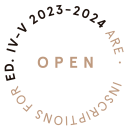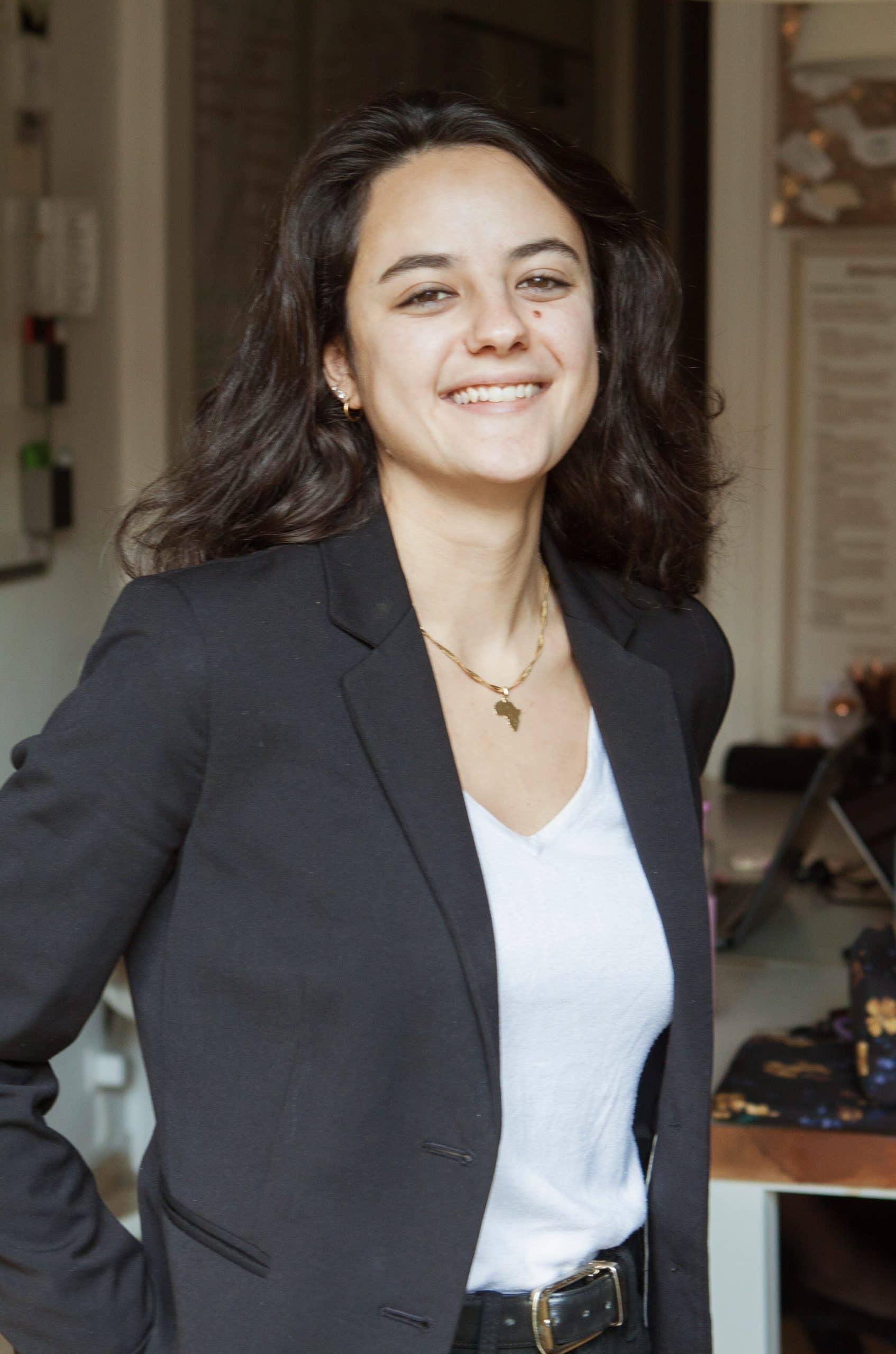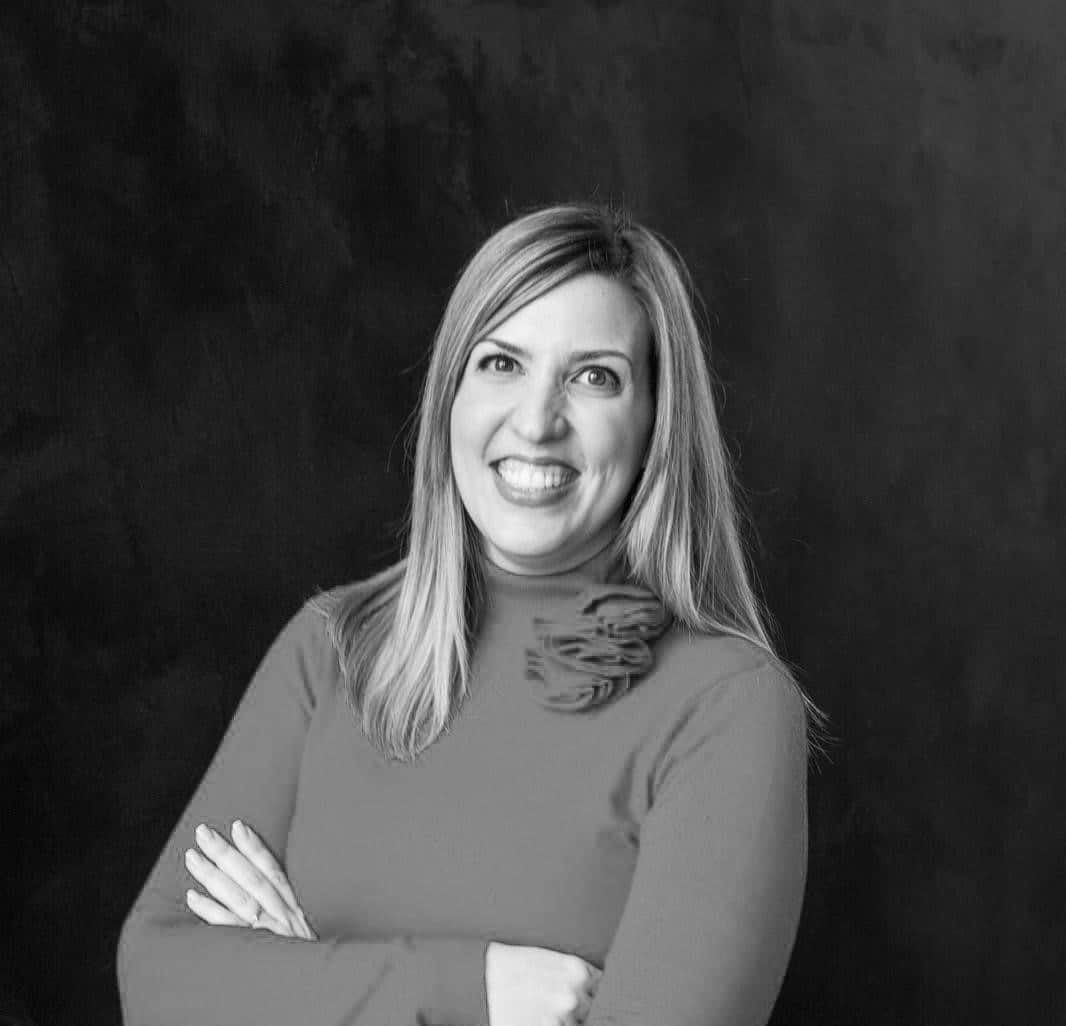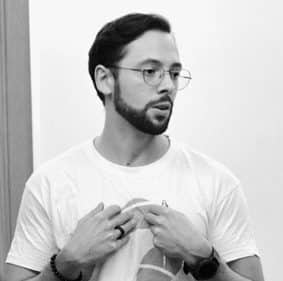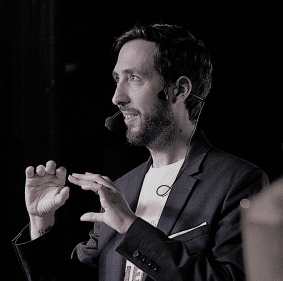In our interviews we like our protagonists to introduce themselves. Karen Hallard i Meseguer, PA at Alberta La Grup, tells us in detail about her path to becoming a Personal Angel. Read carefully because her story could be your story too...
Editorial The Lifestyle Institute | Author: María José Núñez | February 2023
“I graduated with a degree in Tourism and Hotel Management in 2021. When I started my degree I was very sure that this was what I wanted to do, but once I got into it, little by little and after a gap year in between, I realised that maybe it wasn’t my thing. During the last year of my degree I did an internship at a resort in Zanzibar where I enjoyed myself and learned a lot, but part of me knew that I liked it because it was something temporary… of course, internships don’t last forever. Once I finished my internship and graduated, I started looking for a job, focusing only on the hotel world because it was the only thing I really knew, but I was getting more and more blocked, as I didn’t see anything interesting. I had already heard of Alberta La Grup, but didn’t reallt know what they did until one day I discovered that they had a Lifestyle Concierge vacancy and I decided to take the plunge. I remember thinking that although I had never done it before, I had a basic idea of the services required as it was part of what I had studied. Furthermore, a Concierge, whether they’re in a hotel or a residential building, has similar characteristics in terms of the work that needs to be done”. And so Karen’s adventure began at Alberta La Grup. She tells us all about what came next…
(Sigue en español)
-What was it that led you to become a Personal Angel?
I knew Personal Angels existed but I had never stopped to think about what it really meant until I joined Alberta La Grup. I originally applied for the Lifestyle Concierge position at Torre Antares Barcelona, however, while I waited for that project to start, I was working in the office and discovered what it meant to be a Personal Angel. I found it so interesting that a few months after moving to the Antares Tower to fill the position I had initially applied for, I asked to return to the office and dedicate myself to the Personal Angel part of the project. I loved the idea of doing what I could to alleviate some of the stressful schedules of clients, most of whom are important executives who manage a lot of people.
– Could you tell us about what your job involves?
In a nutshell, we accompany our clients on a day-to-day basis. It could be from the simplest of tasks (ordering a table in a restaurant) to the most complex (enrolling children in university, organising a whole trip from Portugal to Spain with stops in different cities, thinking about hotels, guides, restaurants, activities, etc.). The fun part of this job is that no day is the same… every day is like a box of surprises that, as a Personal Angel, you have to be prepared to face.
-What skills does a PA have to have? What kind of profile or characteristics?
The list is endless as each client is different. In my opinion, the most important ones are: Patience, perseverance, problem solving skills, proactivity, stress control, adaptability, emotional intelligence, time management, resilience, initiative, flexibility, persuasion, versatility, analytical skills and creativity. However, not having one of these skills does not mean that someone is not a good PA, as we cannot all be good at everything. However, what I have learned so far is that you often have to face unfamiliar situations, so you have to be prepared and know how to adapt.
“A PA must have the following skills: Patience, perseverance, problem solving skills, proactivity, stress control, adaptability, emotional intelligence, time management, resilience, initiative, flexibility, persuasion, versatility, analytical skills and creativity”
-As a young PA, how would you describe your profession as an inspiration for other young people who have a similar profile to yours, to encourage them to consider taking the same path as a future professional?
I have always thought that young people who have had a clear idea of what they wanted to do since they were children were very lucky, as I studied something that I didn’t like in the end. I am also one of those people who believe that everything in life happens for a reason, and for this reason, I am sure that getting choosing the wrong degree has made me learn many things and has brought me to where I am today. I always try to take the positive side of things. We learn from all mistakes and they make us grow. We experience the same thing as a PA… we often make mistakes, but the most important thing is how you deal with and solve it.
– Do you have any curiosities and/or anecdotes that you have encountered in your profession?
As previously mentioned, no day is the same and we encounter many surprises. To name a few: a request that came in where we had to rent a swimming pool and look for a mermaid who could swim with a 5 year old girl, or when we had to travel to Florence to check the qualities of a luxury holiday flat and finally, looking for a private jet for a dog.
“We had to rent a swimming pool and look for a mermaid who could swim with a 5 year old girl (…) We also had to look for a private jet for a dog, etc”
-How important do you consider academic training to be for a Personal Angel?
You learn a lot on the job but it is always better to have a basic knowledge, especially given how complex the world of luxury can be. It is important to understand the universe of that this kind of client comes from. In my case, for example, I was already working as a PA when I started at TLI and it helped me to reinforce and expand my knowledge and I was able to resolve many doubts through the course. In case someone does not yet have all the skills that are needed, the academic training will help them to develop them.
-For those who are on the fence about whether to opt for training at The Lifestyle Institute, what would you say to them?
Plain and simple: go for it. As I explained, I chose the wrong degree, but I still learned a lot and it helped me find my way. By studying at TLI, you get to explore many interesting subjects and even if you find that the being a PA is not your thing, I am sure that the training will bring you a lot of educational richness and will strengthen your skills, both personally and professionally.
-Is Lifestyle Management a professional field with a growing future or do you think there is still a long way to go?
In the United States and London, for example, there is a very strong base. In Spain, I think there is still some way to go. It is more recognised than it was a few years ago, but it is still not where it should be. There are more and more luxury buildings with Concierge services, but the PA and Lifestyle Management part still needs a little more voice and visibility. In the long term, it will have a good future, although there is still work to be done to get there.
Translation: Emily Benton
Photo: Alberta La Grup
Copyright ©by Alberta La Grup
If you wish to re-print this article or photos, that’s fine. Just include the biography at the end of the article. Thank you!
“Lo divertido del trabajo de Personal Angel es que no hay ningún día igual”
En nuestras entrevistas nos gusta que ellos mismos, nuestros protagonistas, sean quienes se presenten. Y así lo ha hecho Karen Hallard i Meseguer, PA de Alberta La Grup, quien nos narra detalladamente su trayectoria hasta convertirse en un Personal Angel. Léela atentamente porque su historia podría ser la tuya…
Editorial The Lifestyle Institute | Autora: María José Núñez | Febrero 2023
“Me gradué de la carrera de Turismo y Dirección Hotelera en 2021. Al empezar la carrera estaba muy segura de que era a lo que me quería dedicar, pero una vez dentro, poco a poco y después de un año sabático en medio, me di cuenta de que quizás no era lo mío. Durante el último año de carrera hice unas prácticas en un resort de Zanzíbar donde disfruté y aprendí mucho, pero una parte de mi sabía que me gustaba porque era algo temporal… claro, las practicas no son eternas. Una vez acabadas las prácticas y graduada, me puse a buscar trabajo centrándome solo en el mundo hotelero porque era lo único que realmente conocía, pero cada vez me bloqueaba más, ya que no veía nada llamativo. Ya conocía a Alberta La Grup, pero no lo que realmente hacían hasta que un día descubrí que tenían una vacante de Lifestyle Concierge, y decidí lanzarme. Recuerdo pensar que, aunque no lo había hecho nunca, la base del servicio sí que la tenía, ya que forma parte de la carrera que hice. Y además, un Concierge, tanto en hotel como edificio residencial, tiene características parecidas en cuanto al trabajo que hay que realizar”. Así comienza la aventura de Karen en Alberta La Grup. Y a continuación, nos cuenta lo que siguió después…
-¿Qué fue lo que te llevó a dedicarte a la profesión de Personal Angel?
Sabía de la existencia de los Personal Angels, pero nunca me había parado a pensar en lo que realmente suponía hasta que entre en Alberta La Grup. Cuando empecé optaba al puesto de Lifestyle Concierge en la Torre Antares Barcelona, pero mientras arrancaba el proyecto, empecé trabajando en la oficina y allí fue donde descubrí lo que suponía ser una Personal Angel. Me interesó tanto cuando me trasladé a la torre Antares para cubrir el puesto para el que había optado inicialmente que, a los pocos meses, pedí volver a la oficina y dedicarme a la parte de Personal Angel. Me encantó la idea de hacer lo posible para aliviar un poco las agendas de los clientes que se enfrentan a mucho estrés; la mayoría son grandes ejecutivos gestionando a muchas personas.
– ¿Nos podrías hablar de las funciones que desempeñas en tu trabajo?
En resumidas cuentas, acompañamos a nuestros clientes en su día a día. Podría ser de lo más simple (pedir mesa en un restaurante) hasta lo más complejo (inscribir a los hijos en la universidad, organizar todo un viaje de Portugal a España con paradas en distintas ciudades pensando en hoteles, guías, restaurantes, actividades, etcétera). Lo divertido de este trabajo es que no hay ningún día igual… cada día es como una caja de sorpresas y tú, como Personal Angel, tienes que estar preparado para afrontarlos.
-¿Qué aptitudes ha de tener un PA? Un perfil, características…
La lista podría ser infinita, ya que cada cliente es un mundo. En mi opinión, las más importantes son: Paciencia, Perseverancia, Capacidad de resolución de problemas, Proactividad, Control del estrés, Adaptabilidad, Inteligencia emocional, Gestión del tiempo, Resiliencia, Iniciativa, Flexibilidad, Persuasión, Polivalencia, Capacidad analítica y Creatividad. Que una persona no tenga una de ellas no significa que no sea un buen PA, ya que no todos podemos ser buenos en todo. Sin embargo, lo que he aprendido hasta ahora es que muchas veces tendrás que enfrentarte a situaciones desconocidas, con lo cual, tendrás que estar preparado y saber adaptarte.
“Un PA ha de tener las siguientes aptitudes: Paciencia, Perseverancia, Capacidad de resolución de problemas, Proactividad, Control del estrés, Adaptabilidad, Inteligencia emocional, Gestión del tiempo, Resiliencia, Iniciativa, Flexibilidad, Persuasión, Polivalencia, Capacidad analítica y Creatividad”
-Como PA joven que eres, ¿cómo describirías tu profesión sirviendo de inspiración para otros jóvenes que tengan un perfil parecido al tuyo, de manera que consideren tomar el mismo camino como futuro profesional?
Siempre he pensado que los jóvenes que desde niños han tenido claro que es lo que quieren hacer tenían mucha suerte, ya que yo hice una carrera que al final no me gustó. Pero también soy de esas personas que cree que todo en la vida ocurre por algo, y por este motivo, estoy segura de que equivocarme de carrera me ha hecho aprender muchas cosas y me ha hecho llegar hasta donde estoy hoy. Siempre intento sacar el lado positivo a las cosas. De todos los errores se aprende y nos hacen crecer. Y esto es lo mismo que conlleva ser un PA… muchas veces nos equivocamos, pero más que el error, lo importante es cómo lo afrontas y lo solucionas.
–Curiosidades y/o anécdotas que te hayas encontrado desempeñando tu profesión.
Como previamente mencionado, no hay ningún día igual y nos encontramos con muchas sorpresas. Si tuviera que mencionar algunas de ellas diría la petición que nos entró donde tuvimos que alquilar una piscina y buscar una sirena que pudiera nadar con una niña de 5 años, viajar a Florencia para comprobar las calidades de un piso vacacional de lujo o buscar un jet privado para un perro.
“Nos encontramos con muchas sorpresas… tuvimos que alquilar una piscina y buscar una sirena que pudiera nadar con una niña de 5 años (…) También buscar un jet privado para un perro, etcétera”
–Qué importancia consideras que tiene la formación académica para ser un Personal Angel?
Trabajando se aprende mucho pero siempre es más conveniente tener una base de nociones; sobre todo, con lo complejo que puede llegar a ser el mundo del lujo. Es importante entender el universo de este perfil de clientes. En mi caso, por ejemplo, yo ya estaba trabajando como PA cuando empecé TLI, y me ayudó a reforzar y expandir mis conocimientos y pude resolver muchas dudas a través del curso. Una persona que quizás no tenga todas las aptitudes que se necesitan, con la formación académica le ayudará a desarrollarlas.
-Para quienes se sientan indecisos de si optar por la formación en The Lifestyle Institute, ¿qué les dirías?
Simple y claramente: que se lancen. Como he explicado, yo me equivoqué de carrera, pero aún así, aprendí mucho y me ayudó a encontrar mi camino. Y estudiando en TLI hay muchos temas interesantes, y aunque luego uno vea que el mundo del PA no es lo suyo, estoy segura de que la formación le aportará mucha riqueza educativa y fortalecerá capacidades, tanto a nivel personal como profesional.
-¿Es el Lifestyle Management un ámbito profesional cada vez con más futuro o aún crees que queda mucho camino por recorrer?
En Estados Unidos y en Londres, por ejemplo, sí que tienen una base muy fuerte. En España sí creo que aún falta un poco de camino por recorrer. Está más reconocido que hace unos años, pero aún no está donde debería. Cada vez hay más edificios de lujo con servicios de Concierge, pero la parte de PA y Lifestyle Management sigue necesitando un poco más de voz y visibilidad. A largo plazo, tendrá un buen futuro, aunque todavía queda trabajo para llegar hasta allí.
Copyright ©by Alberta La Grup
If you wish to re-print this article or photos, that’s fine. Just include the biography at the end of the article. Thank you!

